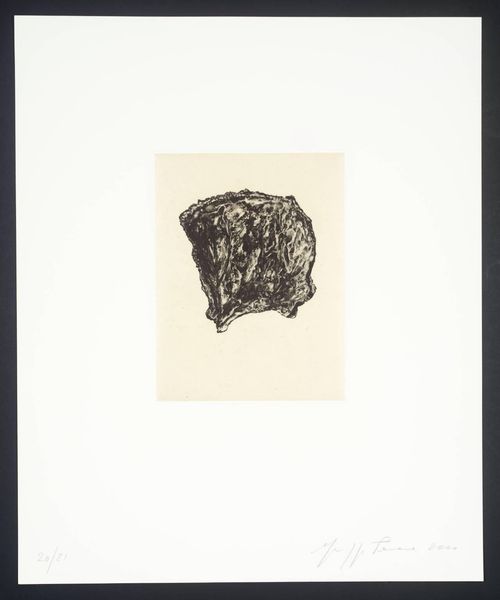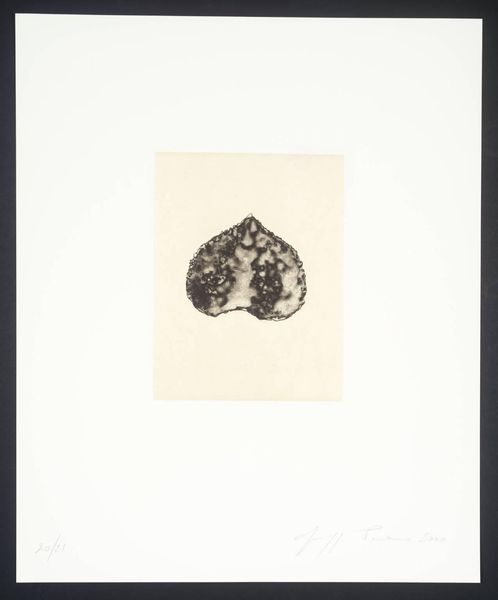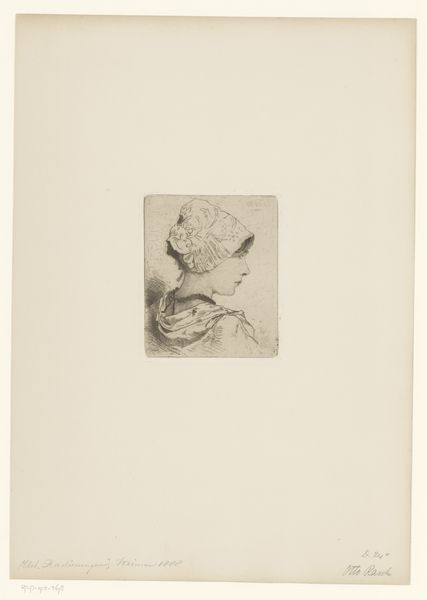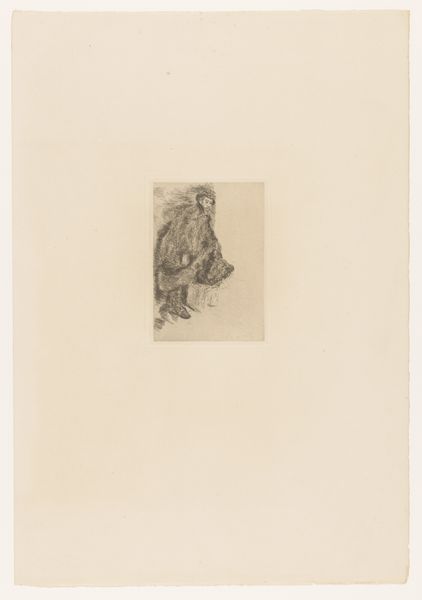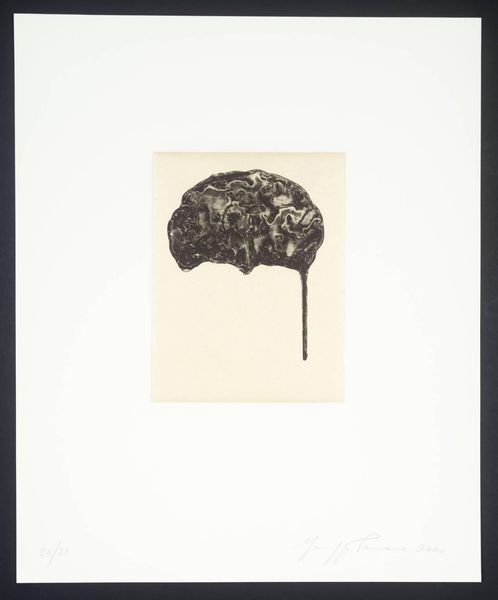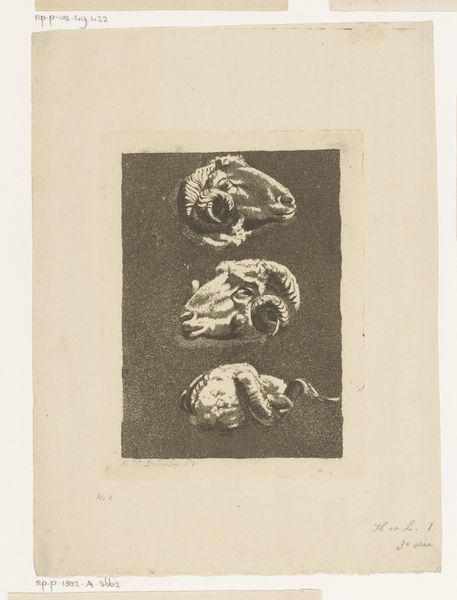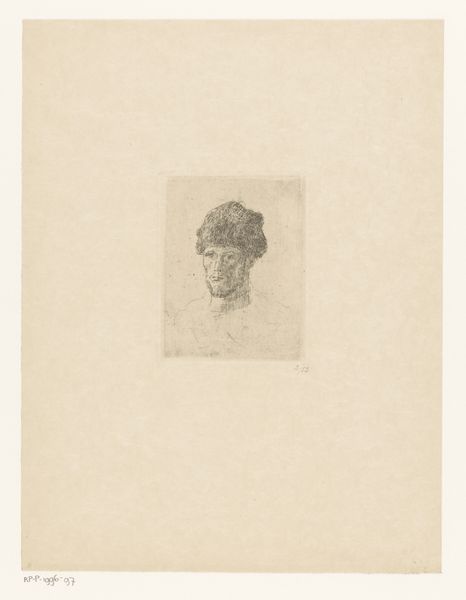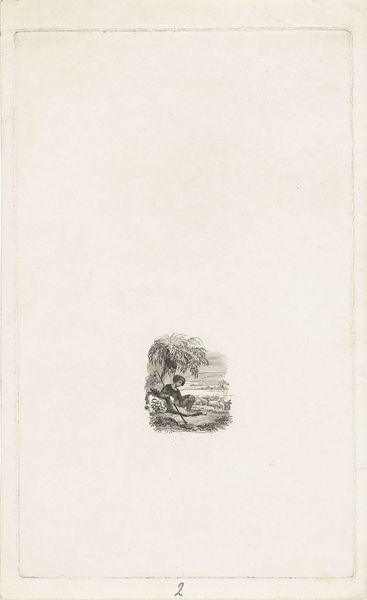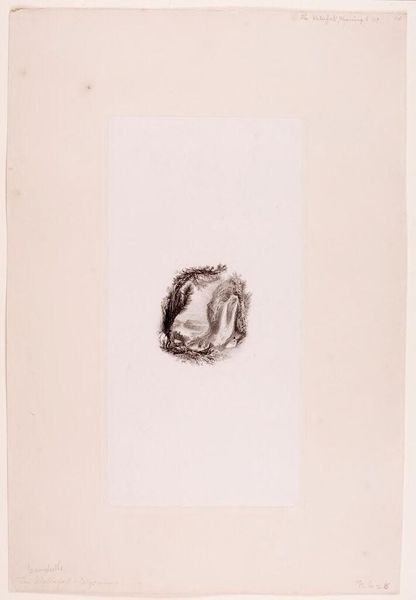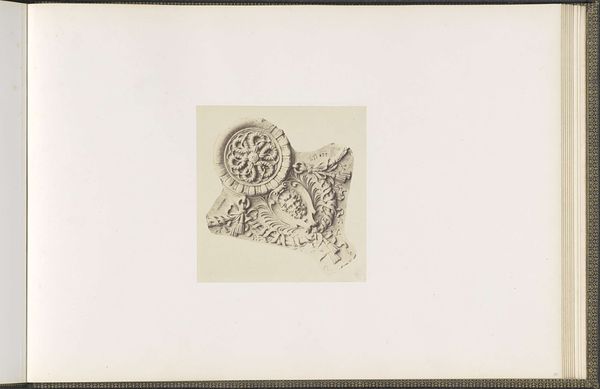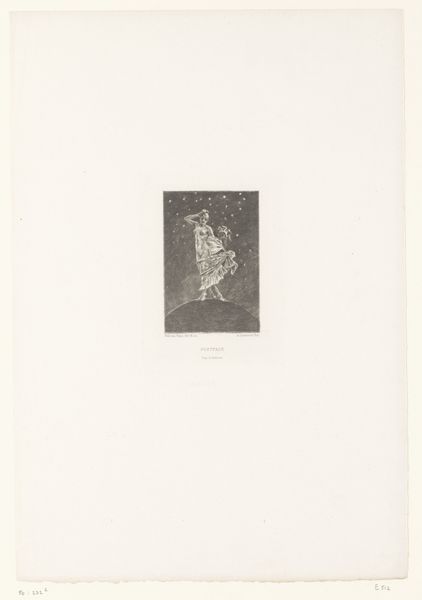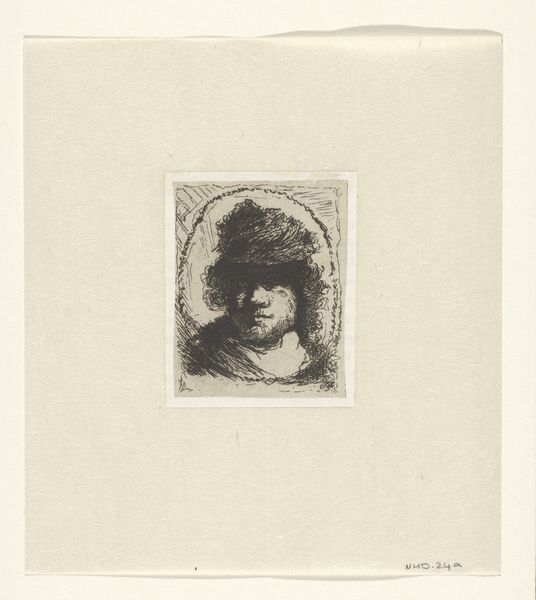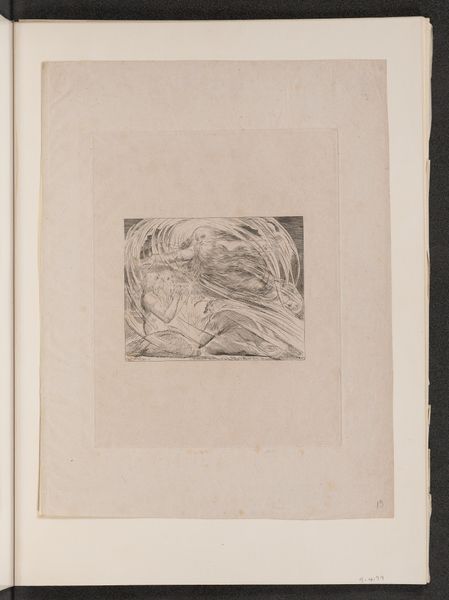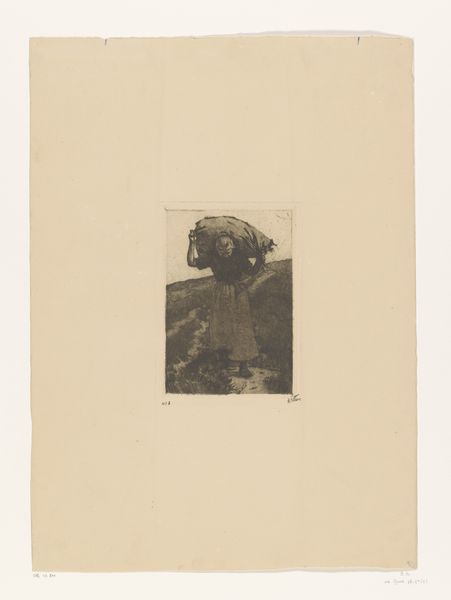![[no title] by Giuseppe Penone](/_next/image?url=https%3A%2F%2Fd2w8kbdekdi1gv.cloudfront.net%2FeyJidWNrZXQiOiAiYXJ0ZXJhLWltYWdlcy1idWNrZXQiLCAia2V5IjogImFydHdvcmtzLzAwYmQ1NTZkLWJkYzEtNDQ0Zi1iNThjLWMxMDVhNGNkZjhiYi8wMGJkNTU2ZC1iZGMxLTQ0NGYtYjU4Yy1jMTA1YTRjZGY4YmJfZnVsbC5qcGciLCAiZWRpdHMiOiB7InJlc2l6ZSI6IHsid2lkdGgiOiAxOTIwLCAiaGVpZ2h0IjogMTkyMCwgImZpdCI6ICJpbnNpZGUifX19&w=3840&q=75)
Dimensions: image: 192 x 147 mm support: 431 x 355 mm
Copyright: © Archivio Penone | CC-BY-NC-ND 4.0 DEED, Photo: Tate
Editor: This untitled print by Giuseppe Penone presents a close-up of what looks like tree bark, starkly rendered against a neutral background. It feels very organic, almost visceral. What do you make of it? Curator: Penone is known for exploring the relationship between humans and nature, particularly trees. How might the presentation of this print – its size and framing – influence our perception of that relationship? Editor: I see what you mean. The small image size kind of isolates nature, making it an object for contemplation, rather than an immersive experience. Curator: Exactly. Consider how this resonates with broader cultural shifts in our understanding of the natural world, from a resource to be exploited to something precious to be preserved. Editor: That's a powerful point. It's more than just a tree; it’s about our changing values. Curator: Precisely. Art often functions as a mirror reflecting our societal anxieties and aspirations.
Comments
Join the conversation
Join millions of artists and users on Artera today and experience the ultimate creative platform.
tate 9 months ago
⋮
This is one of a suite of eleven images and twelve pages of text from the portfolio entitled Footsteps on Mulberry Tree Tops. The portfolio was produced in an edition of twenty-one plus four artist’s proofs. Tate’s copy is the twentieth in the edition, the first half of which was published in book form, the second as loose leaves in a box. The images were printed from plates made in the artist’s studio in San Raffaele, Turin by the publisher Jacob Samuel in Santa Monica, California. They were all made using the chin collé technique and a combination of softground etching, spitbite, hardground etching, whiteground aquatint and drypoint.
